
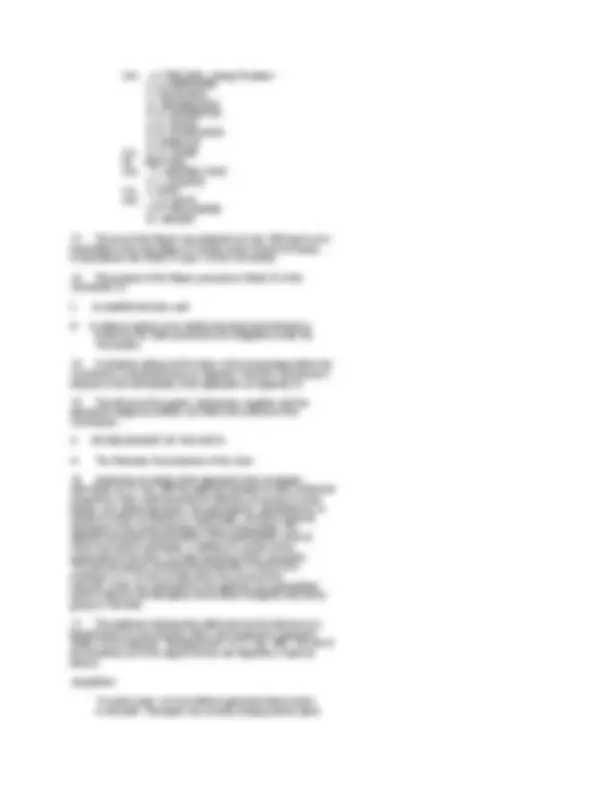
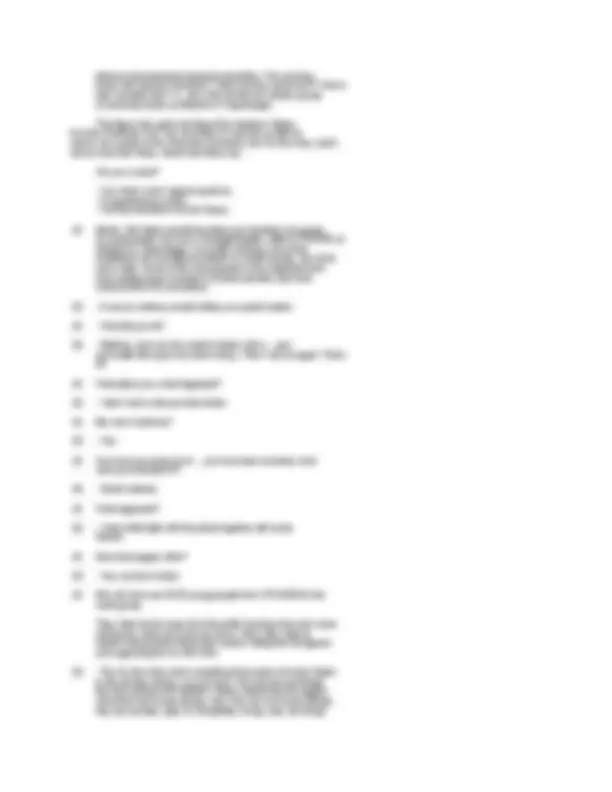
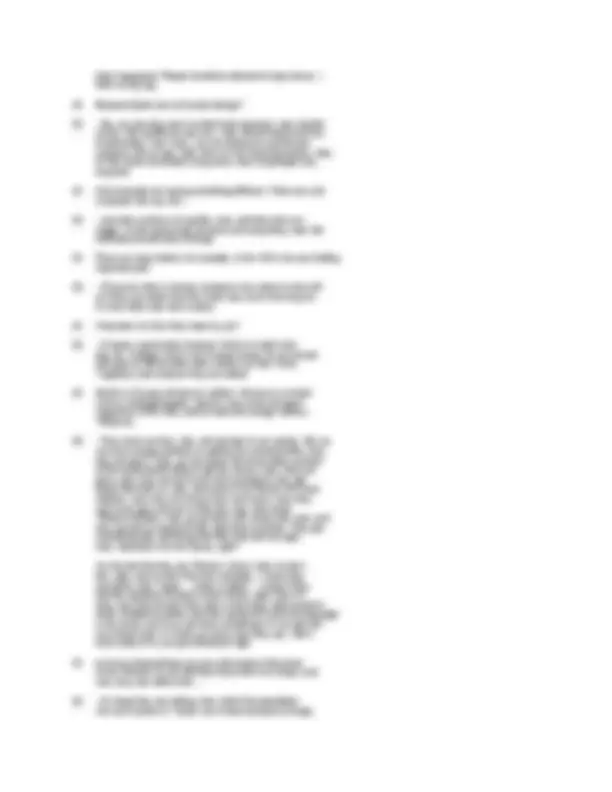
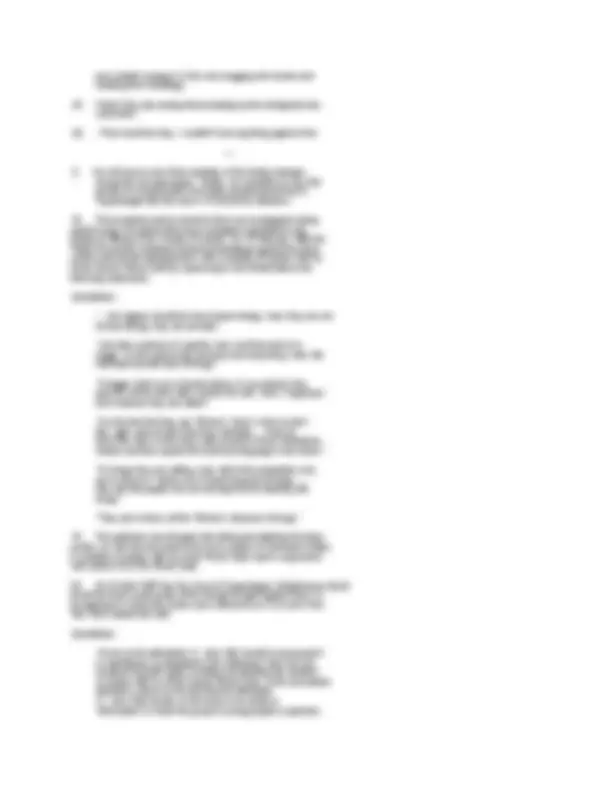
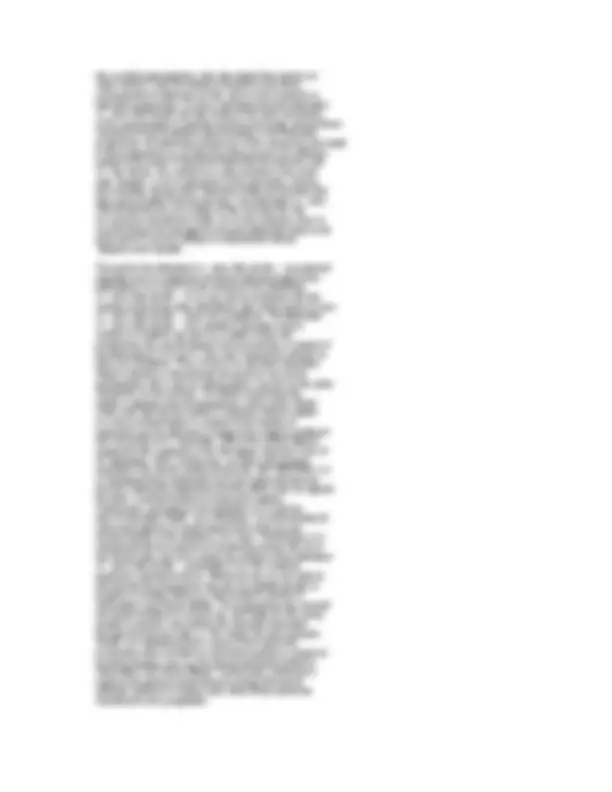
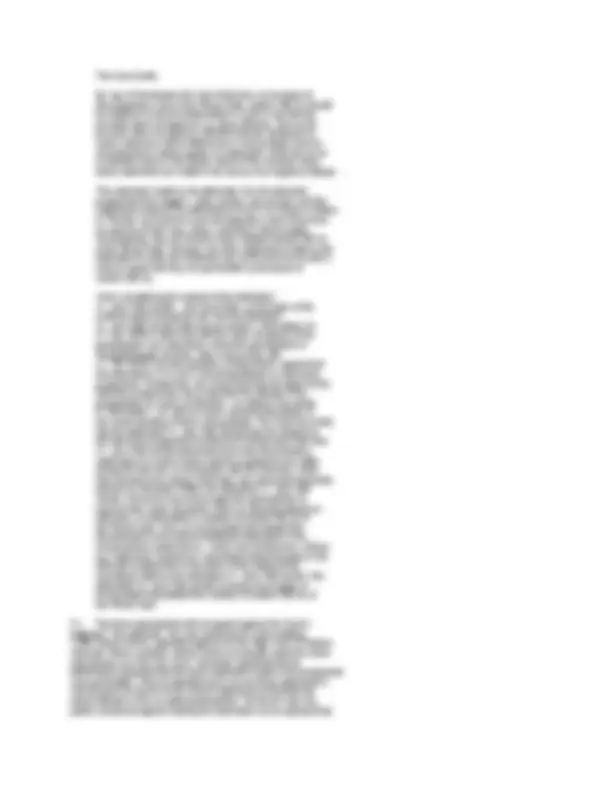
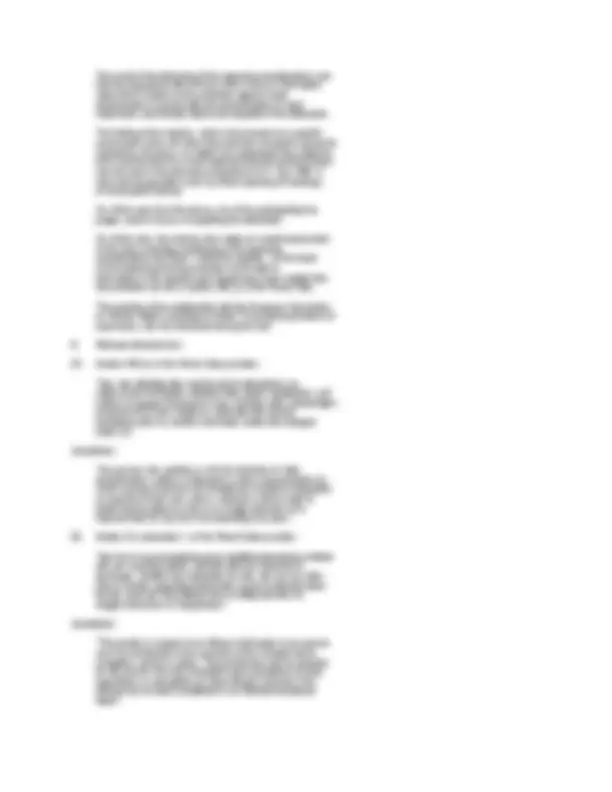
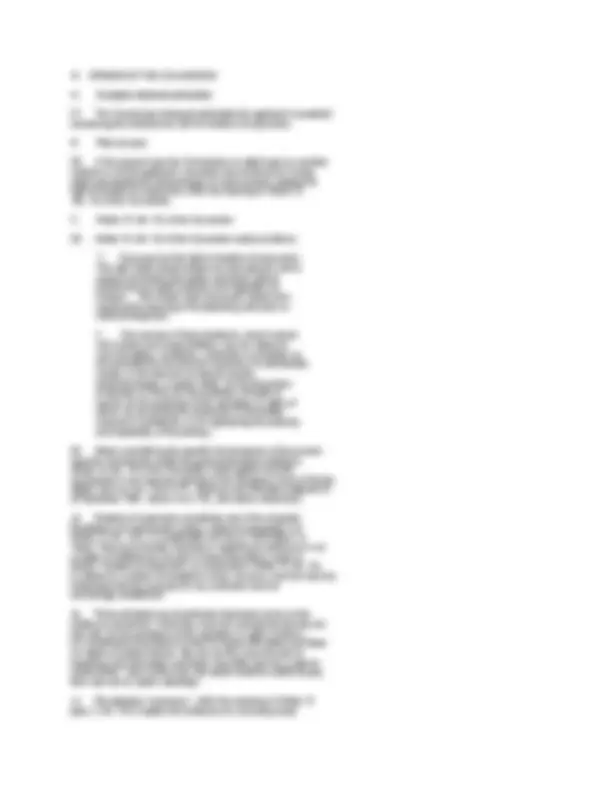
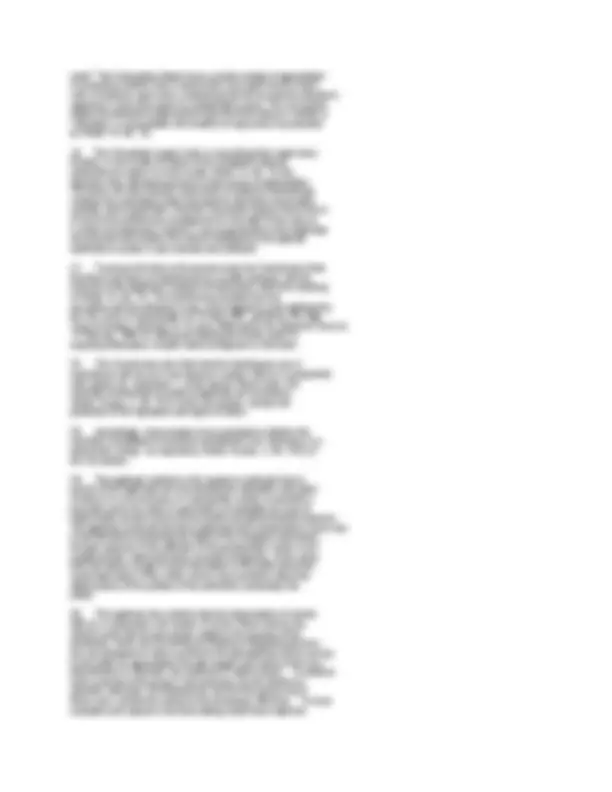
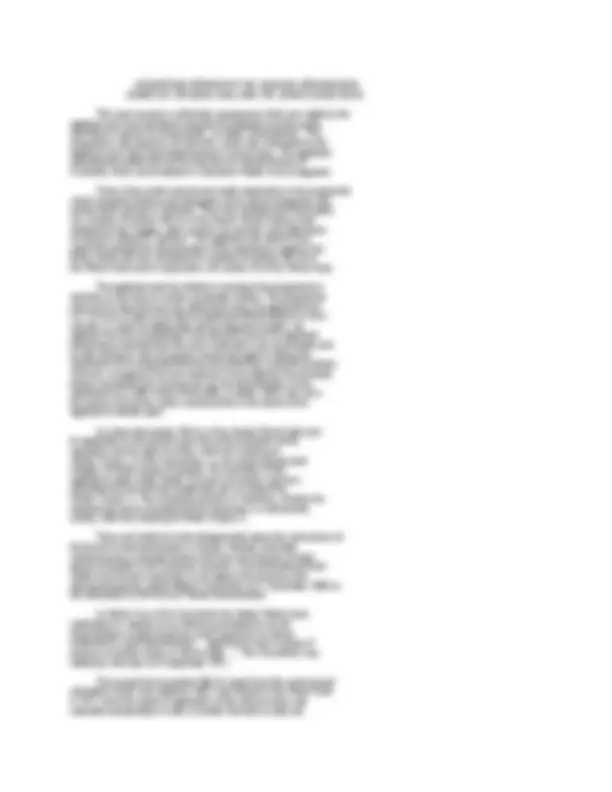
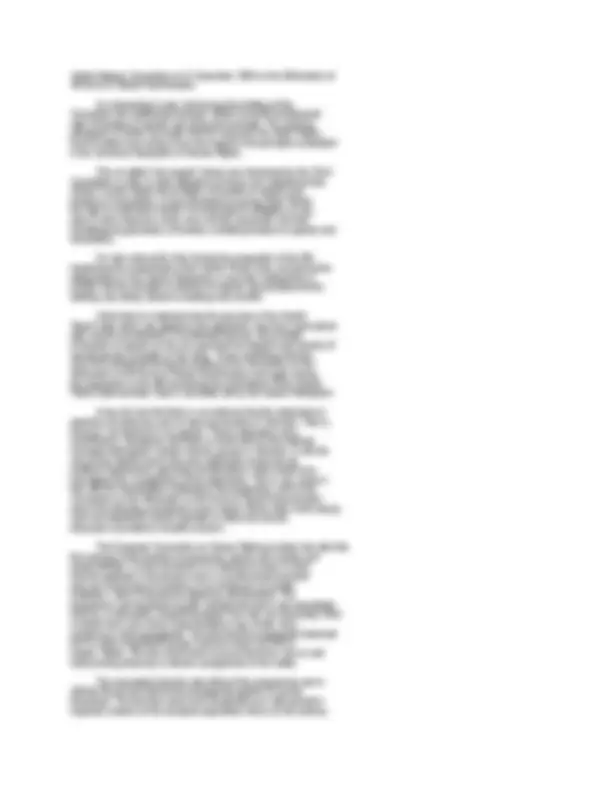
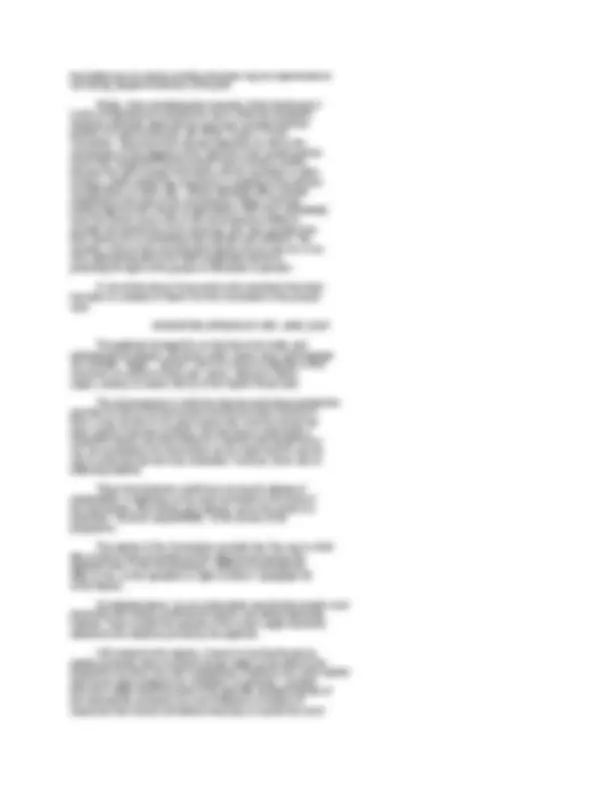
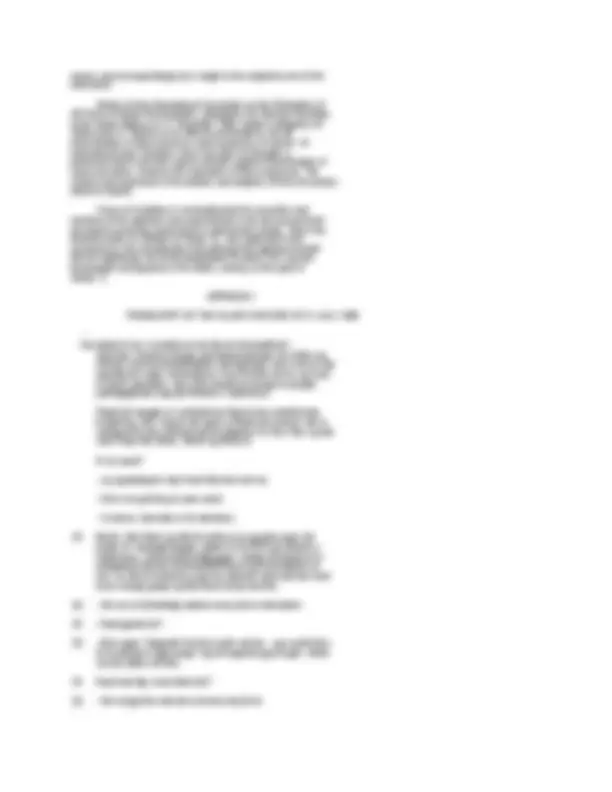
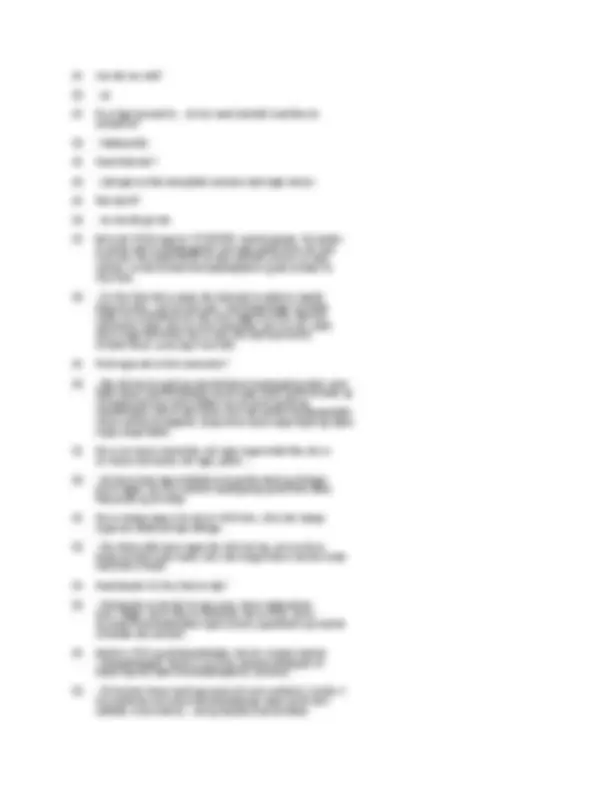
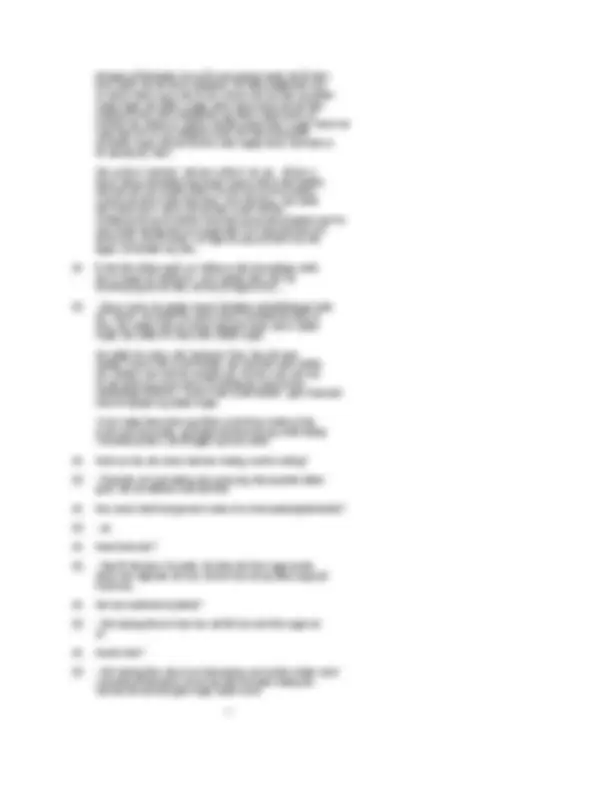
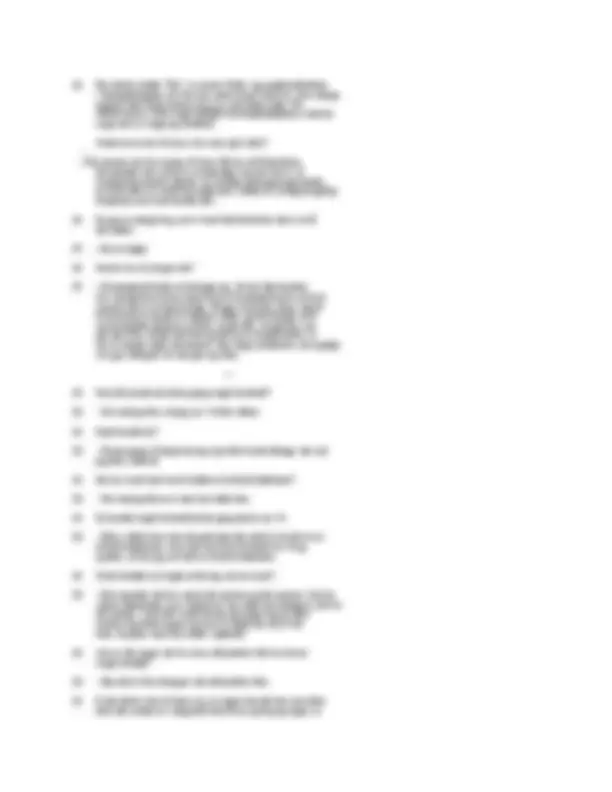
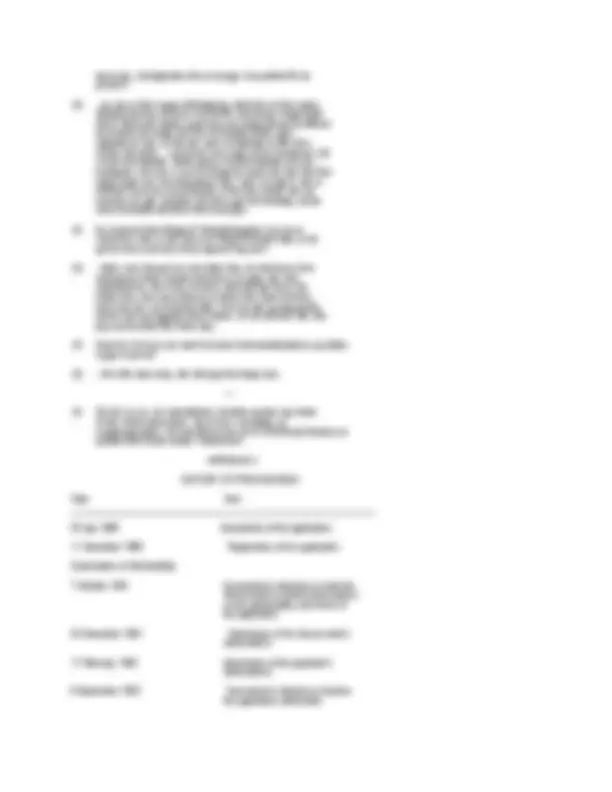
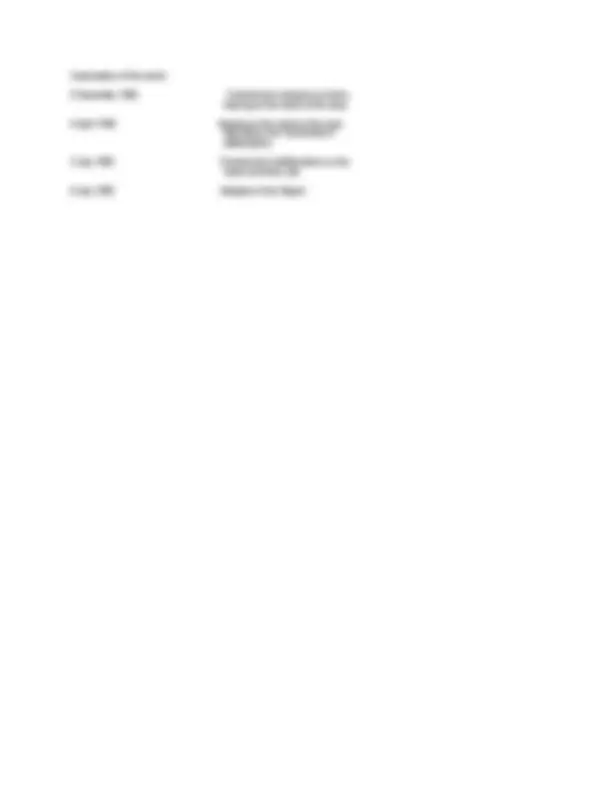


Study with the several resources on Docsity

Earn points by helping other students or get them with a premium plan


Prepare for your exams
Study with the several resources on Docsity

Earn points to download
Earn points by helping other students or get them with a premium plan
Community
Ask the community for help and clear up your study doubts
Discover the best universities in your country according to Docsity users
Free resources
Download our free guides on studying techniques, anxiety management strategies, and thesis advice from Docsity tutors
EUROPEAN COMMISSION OF HUMAN RIGHTS. Application No. 15890/89. Jens Olaf Jersild against. Denmark. REPORT OF THE COMMISSION.
Typology: Schemes and Mind Maps
1 / 26

This page cannot be seen from the preview
Don't miss anything!



















Application No. 15890/
Jens Olaf Jersild
against
Denmark
REPORT OF THE COMMISSION
(adopted on 8 July 1993)
TABLE OF CONTENTS
Page
I. INTRODUCTION (paras. 1-15)........................
A. The application (paras. 2-4)......................
B. The proceedings (paras. 5-10).....................
C. The present Report (paras. 11-15).....................
II. ESTABLISHMENT OF THE FACTS (paras. 16-26)........................
A. The particular circumstances of the case (paras. 16-24).....................
B. Relevant domestic law (paras. 25-26).................... 15
III. OPINION OF THE COMMISSION (paras. 27-46)...................... 17
A. Complaint declared admissible (para. 27)...................... 17
B. Point at issue (para. 28)...................... 17
C. Article 10 of the Convention (paras. 29-46).................... 17
CONCLUSION (para. 46)......................... 21
DISSENTING OPINION OF MR. G. JÖRUNDSSON, JOINED BY SIR BASIL HALL AND MR. JEAN-CLAUDE GEUS................ 22
DISSENTING OPINION OF MRS. JANE LIDDY................. 25
APPENDIX I : TEXT OF THE BROADCAST OF 21 JULY 1985........ 27
APPENDIX II : HISTORY OF THE PROCEEDINGS.............. 33
APPENDIX III : DECISION ON THE ADMISSIBILITY............ 34
A. The application
B. The proceedings
C. The present Report
distrust and resentment aimed at minorities. Who are they, those who hate the minorities? Where do they come from? What is their mentality like? Mr. Jens Olaf Jersild has visited a group of extremist youths at Østerbro in Copenhagen.
The flag on the wall is the flag of the Southern States from the American Civil War, but today it is also the symbol of racism, the symbol of the American movement, the Ku Klux Klan, and it shows what Lille Steen, Henrik and Nisse are.
Are you a racist?
(A) Henrik, Lille Steen and all the others are members of a group of young people who live in Studsgårdsgade, called STUDSEN, at Østerbro in Copenhagen. It is public housing, a lot of the inhabitants are unemployed people on social security, the crime rate is high. Some of the young people in this neighbourhood have already been involved in criminal activities and have received their first convictions.
(G) - It was an ordinary armed robbery at a petrol station.
(A) What did you do?
(G) - Nothing. I just ran into a petrol station with a ... gun and made them give me some money. Then I ran out again. That's all.
(A) What about you, what happened?
(G) - I don't wish to discuss that further.
(A) But, was it violence?
(G) - Yes.
(A) You have just come out of ... you have been arrested, what were you arrested for?
(G) - Street violence.
(A) What happened?
(G) - I had a little fight with the police together with some friends.
(A) Does that happen often?
(G) - Yes, out here it does.
(A) All in all, there are 20-25 young people from STUDSEN in the same group.
They meet not far away from the public housing area near some old houses which are to be torn down. Here, they meet to confirm among other things their racism, hating the immigrants and supporting the Ku Klux Klan.
(G) - The Ku Klux Klan, that's something that comes from the States in the old days during - as you know - the civil war and things like that, because the Northern States wanted that the niggers should be free human beings, man, they are not human beings, they are animals, right, it's completely wrong, man, the things
that's happened. People should be allowed to keep slaves, I think so anyway.
(A) Because blacks are not human beings?
(G) - No, you can also see it on their body structure, man, big flat noses, with cauliflower ears etc., man. Broad heads and very broad bodies, man, hairy, you are looking at a gorilla and compare with an ape, man, then it is the same procedure, man, it's the same movements, long arms, man, long fingers etc., long feet.
(A) A lot of people are saying something different. There are a lot of people who say, but ...
(G) - Just take a picture of a gorilla, man, and then look at a nigger, it's the same body structure and everything, man, flat forehead and all kinds of things.
(A) There are many blacks, for example, in the USA, who are holding important jobs.
(G) - Of course, there is always someone who wants to show off, as if they are better than the white man, but in the long run, it is the white man who is better.
(A) What does Ku Klux Klan mean to you?
(G) - It means a great deal, because I think it is right what they do. A nigger, that is not a human being, it is an animal, that goes for all the other alien workers as well, Turks, Yugoslavs and whatever they are called.
(A) Henrik is 19 years old and on welfare. He lives in a rented room in Studsgårdsgade. Henrik is one of the strongest supporters of the Klan, and he hates the foreign workers, 'Perkerne'.
(G) - They come up here, man, and sponge on our society. But we, we have enough problems in getting our social benefits, man, they just get it. Fuck, we can argue with those idiots up there at the social benefit office to get our money, man, they just get it, man, they are the first on the housing list, they get better flats than us, man, and some of our friends who have children, man, they are living in the worst slum, man, they can't even get a shower in their flat, man, then those 'Perkere'-families, man, go up there with seven kids, man, and they just get an expensive flat, right there and then. They get everything paid, and things like that, that can't be right, man, Denmark is for the Danes, right?
It is the fact that they are 'Perkere', that is what we don't like, right, and we don't like their mentality - I mean they can damn well, I mean ... what's it called ... I mean if they feel like speaking Russian in their homes, right, then it's okay, but what we don't like, that is when they walk around in those Zimbabwe-clothes and then speak this hula-hula language in the street, and if you ask them something or if you get into one of their taxis, in which you drive, then they say: I don't know where it is, you give directions right.
(A) Is it not so that perhaps you are a bit envious that some of the 'Perkere' as you call them have their own shops, and cars, they can make ends ...
(G) - It's drugs they are selling, man, half of the population who are in prison in 'Vestre' are in there because of drugs,
(P) - Because they have nothing better to do. They have been told over a long period that the means by which they achieve success is through money. They won't be able to get money legitimately, so often they try to obtain it through criminal activity. Sometimes they succeed, sometimes not, and that's why we see a lot of young people in that situation go to prison, because it doesn't work.
(A) How old were you when you started your criminal activities?
(G) - I don't know, about 14 I guess.
(A) What did you do?
(G) - The first time, I can't remember, I don't know, burglary.
(A) Do you have what one might call a criminal career?
(G) - I don't know if you can call it that.
(A) You committed your first crime when you were 14.
(G) - Well, you can put it that way, I mean, if that is a criminal career. If you have been involved in crime since the age of 15 onwards, then I guess you can say I've had a criminal career.
(A) Will you tell me about some of the things you have been doing?
(G) - No, not really. It's been the same and the same. For example video-pinching where the 'Perkere' were our customers, they have money. If people want to be out here and have a nice time and be racists and drink beer, and have fun, then it's quite obvious you don't want to sit in the slammer.
(A) But is the threat of imprisonment something that really deters people from doing something illegal?
(G) - No, it's not the prison, that doesn't frighten people.
(A) Is that why you hear stories about people from out here fighting with knives etc., night after night. Is the reason for this the fact that they are not afraid of the police getting hold of them?
(G) - Yes, nothing really comes out of it, I mean, there is no bad side-effects, so probably that's why. For instance fights and stabbings and smashing up things ... If you really get into the joint it would be such a ridiculously small sentence, so it would be, I mean ... usually we are released the next day. Last time we made some trouble over at the pub, they let us out the next morning. Nothing really comes out of it. It doesn't discourage us, but we were five, who just came out and then we celebrated the last guy, who came out yesterday, they probably don't want to go in again for some time, so big crimes, they probably won't commit again.
(A) You would like to move back to Studsgårdsgade where you grew up, but we know for sure that it's an environment with a high crime rate. Would you like your child to grow up like you?
(G) - No, and I don't think she will. Firstly, because she is a girl, statistics show that the risk is not that high, I mean they probably don't do it, but you don't have to be a criminal because you live in an environment with a high crime rate. I
just wouldn't accept it, if she was mugging old women and stealing their handbags.
(A) What if she was among those beating up the immigrants etc. what then?
(G) - That would be okay. I wouldn't have anything against that.
(I) We will have to see if the mentality of this family changes during the next generation. Finally, we would like to say that groups of young people have been created elsewhere in Copenhagen like this one in STUDSEN at Østerbro."
(translation)
"... the niggers should be free human beings, man, they are not human beings, they are animals."
"Just take a picture of a gorilla, man, and then look at a nigger, it's the same body structure and everything, man, flat forehead and all kinds of things."
"A nigger, that is not a human being, it is an animal, that goes for all the other alien workers as well, Turks, Yugoslavs and whatever they are called."
"It is the fact that they are 'Perkere', that is what we don't like, right, and we don't like their mentality ... what we don't like, that is when they walk around in those Zimbabwe- clothes and then speak this hula-hula language in the street."
"It's drugs they are selling, man, half of the population who are in prison in 'Vestre' are in there because of drugs ... they are the people who are serving time for dealing with drugs."
"They are in there, all the 'Perkere', because of drugs."
(translation)
"As far as the defendant Mr. Jens Olaf Jersild is concerned it is maintained, as stipulated in the indictment, that (he) has rendered (himself) guilty of aiding and abetting the violation of section 266 (b) of the Danish Penal Code. In this connection attention is drawn to the fact that the defendant Mr. Jens Olaf Jersild, on the basis of an article in 'Information' in which the group of young people in question,
The Court holds:
By way of introduction the Court finds that, on the basis of the preparatory work of the Penal Code, section 266 (b) should be subject to a narrow interpretation in such a way that the provision does not apply to e.g. minor offences. Just as the provision does not apply to scientific theories advanced on racial, national or ethnic differences it must probably also be assumed that it neither applies to statements which are not of a scientific nature in the proper sense of the word but where these statements are made in the course of an objective debate.
The statement made by the defendant A in the television programme that 'niggers', 'alien workers' are animals, and the statements made by the defendants B and C on drugs in relation to 'Perkere' are found to insult and degrade a class of persons on account of their race, colour, national or ethnic origins. Consequently, they are found to have violated section 266 (b) of the Penal Code. However, the other statements made by the defendant B under the indictment are not found to be of such a serious nature that they are punishable in pursuance of section 266 (b).
When considering the conduct of the defendant Mr. Jens Olaf Jersild ... the Court finds, on the basis of the evidence given during the trial, that the defendant Mr. Jens Olaf Jersild, following an article in 'Information' of 31 May 1985 in which inter alia the racist viewpoints of the greenjackets were described, visited the greenjackets in Studsgårdsgade and then, after a discussion with Mr. Per Axholt, the club assistant, among others, agreed that the defendants A, B, and C should participate in a television programme. Furthermore, the Court finds that the object of the television programme was to describe the attitude of the greenjackets to racism at Østerbro - as stated in the article in 'Information' - as well as to give a general description of the social standing of these young people. The Court thus finds that the defendant Mr. Jens Olaf Jersild took the initiative to the television programme himself and it furthermore finds that Mr. Jens Olaf Jersild beforehand knew that discriminatory statements of a racist nature could be expected to be made during the interview. In connection with the interview, which took several hours during which beer was consumed and partly paid for by Danmarks Radio, the defendant Mr. Jens Olaf Jersild, is found to have encouraged the greenjackets to express their racist viewpoints which, by being broadcast on television, in itself implies a violation of section 266 (b) of the Penal Code. Thus, by having aided and abetted the dissemination of the above-mentioned statements in the circumstances stated above - which were furthermore, without any 'balancing' whatsoever, transmitted indiscriminately in the television programme on the basis of the cutting of the recordings made by the defendant Mr. Jens Olaf Jersild - the defendant Mr. Jens Olaf Jersild is thereby found guilty of having aided and abetted the violation of section 266 (b) of the Penal Code."
they knew that they could be punished.
(translation)
"Also on the basis of the evidence produced in the High Court, the Court finds it established that the defendant Mr. Jens Olaf Jersild is guilty for the reasons stated in the judgment of the City Court. These judges therefore find, as the penalty in pursuance of section 266 (b), cf. section 23 of the Penal Code is found to be appropriate, that the judgment should be upheld ...
One judge, who agrees that the statements made must be deemed to be punishable does not find that the defendant by broadcasting the statements on television has transgressed the bounds of the freedom of expression to which television and other media must be entitled, considering the fact that the object of the programme was to create a social debate and to inform the public of the youth group's particular attitudes to racism and the group's social standing."
(translation)
"Four judges hold:
The defendant has caused the publication of the racist statements made by a narrow circle of persons which thereby rendered them punishable and [he] has thus, as held by the City Court and the High Court, violated section 266 (b) in conjunction with section 23 of the Penal Code. These judges do not find that the protection of freedom of expression in respect of issues and events of general public interest as opposed to the protection against racial discrimination in this case could nevertheless justify an acquittal of the defendant. These judges therefore vote in favour of upholding the judgment.
(One judge) holds:
The object of the programme was to contribute to the information on an issue - the attitude towards strangers - which was the subject of an extensive and at times very emotional debate. The programme must be presumed to have given a clear picture of the viewpoints of the greenjackets which the public thus had an opportunity to be acquainted with and make up its mind about. Considering the nature of the viewpoints, any countering during or immediately before or after the interview would not have served a reasonable purpose. Even though it concerned a relatively small group of people with extreme viewpoints, the programme had a fair news and information value. When assessing the conduct of the defendant it is found that the fact that these viewpoints were disseminated at [his] own initiative is not of the utmost importance. In these circumstances and irrespective of the fact that the statements are rightly considered to fall under section 266 (b) of the Penal Code, I doubt the advisability of
The result of the balancing of the opposing considerations was that the programme did not have such a news or information value that in relation to the protection against racial discrimination it would justify the dissemination of racist statements, and thereby lead to the acquittal of the defendant.
The finding of the majority, which is thus based on a specific assessment, does not mean that extremist viewpoints cannot be reported by the press, no matter how unpleasant they might be, but it must be done in a more balanced and all-round form than was the case in the television programme of 21 July 1985. It must also be possible to do it by direct reporting of meetings of some public interest.
As will be seen from the above, one of the participating five judges voted in favour of acquitting the defendant.
As will be seen, the minority also made an overall assessment of the case, including a balancing of the opposing considerations but found - unlike the majority - on the basis of this balancing that the protection of the right to information in the specific case should carry more weight than the protection set out in section 266 (b) of the Penal Code.
The question of the relationship with the European Convention on Human Rights, including its Article 10 concerning freedom of expression, was not introduced during the trial."
B. Relevant domestic law
"Den, der offentligt eller med forsæt til udbredelse i en videre kreds fremsætter udtalelse eller anden meddelelse, ved hvilken en gruppe af personer trues, forhånes eller nedværdiges på grund af sin race, hudfarve, nationale eller etniske oprindelse eller tro, straffes med bøde, hæfte eller fængsel indtil 2 år."
(translation)
"Any person who, publicly or with the intention of wider dissemination, makes a statement or other communication by which a group of persons are threatened, insulted or degraded on account of their race, colour, national or ethnic origin or belief shall be liable to a fine or to simple detention or to imprisonment for any term not exceeding two years."
"Den for en lovovertrædelse givne straffebestemmelse omfatter alle, der ved tilskyndelse, råd eller dåd har medvirket til gerningen. Straffen kan nedsættes for den, der kun har villet yde en mindre væsentlig bistand eller styrke et allerede fattet forsæt, samt når forbrydelsen ikke er fuldbyrdet eller en tilsigtet medvirken er mislykkedes."
(translation)
"The penalty in respect of an offence shall apply to any person who has contributed to the execution of the wrongful act by instigation, advice or action. The punishment may be reduced for any person who only intended to give assistance of minor importance, or strengthen an intent already resolved, if the offence has not been completed or an intended assistance failed."
A. Complaint declared admissible
B. Point at issue
C. Article 10 (Art. 10) of the Convention
"1. Everyone has the right to freedom of expression. This right shall include freedom to hold opinions and to receive and impart information and ideas without interference by public authority and regardless of frontiers. This Article shall not prevent States from requiring the licensing of broadcasting, television or cinema enterprises.
(a) Freedom of expression constitutes one of the essential foundations of a democratic society; subject to paragraph 2 of Article 10 (Art. 10-2), it is applicable not only to "information" or "ideas" that are favourably received or regarded as inoffensive or as a matter of indifference, but also to those that offend, shock or disturb. Freedom of expression, as enshrined in Article 10 (Art. 10), is subject to a number of exceptions which, however, must be narrowly interpreted and the necessity for any restriction must be convincingly established.
(b) These principles are of particular importance as far as the media are concerned. Whilst they must not overstep the bounds set, inter alia, for the protection of the reputation or rights of others, it is nevertheless incumbent on them to impart information and ideas on matters of public interest. Not only do they have the task of imparting such information and ideas, the public also has a right to receive them. Were it otherwise, the media would be unable to play their vital role of "public watchdog".
(c) The adjective "necessary", within the meaning of Article 10 para. 2 (Art. 10-2) implies the existence of a "pressing social
portrait incomplete and ultimately of no value as a means of communicating to the public the group's attitudes, however reprehensible they were, particularly as the "Søndagsavisen" feature in July 1985 was the first investigation by television of the phenomenon of violence and harassment against immigrants.
40inspired by certain newspaper articles, the applicant took the initiative in producing the television programme, that he contacted the members of the greenjackets and spent 5-6 hours in making the interviews which resulted in 2-2 1/2 hours of tape, that he edited and cut the tapes down to the filmed feature of 5-6 minutes which was broadcast on 21 July 1985 and that he was subsequently convicted and sentenced to a fine totalling 1,000 Danish crowns for aiding and abetting the dissemination of racist remarks contrary to section 266 (b) in conjunction with section 23 of the Penal Code.
in all its forms and promoting understanding among all races". Nevertheless, although the television programme affected the reputation or rights of others due to its discriminatory contents, a fair balance between their rights and the applicant's right to impart information must be struck. The limits of what can be accepted may vary depending on the circumstances of the case.
CONCLUSION
Secretary to the Commission Acting President of the Commission
(H.C. KRÜGER) (S. TRECHSEL)
United Nations Convention of 21 December 1965 on the Elimination of All forms of Racial Discrimination.
It is interesting to note, that during the drafting of this Convention the relationship between Article 4 and the fundamental right of freedom of speech was discussed at length. The opening paragraph of Article 4 provides that the measures the State Parties have to adopt must always have due regard to the principles embodied in the Universal Declaration of Human Rights.
This so-called "due regard" clause was introduced by the Third Committee in order to meet objections of those who maintained that Article 4 would violate the principles of freedom of speech and freedom of association. It was interpreted as giving State Parties the right to understand Article 4 as imposing no obligation on any party to take measures which were not fully consistent with their constitutional guarantees of freedom, including freedom of speech and association.
It is also noteworthy that, during the preparation of the Bill, introducing the amendment of the Danish Penal Code, and during the deliberations in the Danish Parliament, it was fully realised that a conflict with the principle of freedom of speech was possible but the drafting was clearly aimed at avoiding such conflict.
I think that it is important that the provision of the Danish Penal Code which was applied in the applicant's case thus came about after careful consideration of conflicting interests, the principle of freedom of speech on the one hand and the freedom and security of special groups of people on the other. These conflicting interests were first considered during the drafting of the Convention on the Elimination of All Forms of Racial Discrimination and again during the preparation of the Bill introducing the amendment of the Danish Penal Code and later when it was dealt with by the Danish Parliament.
It may be true that there is no evidence that the statements in question provoked any acts of racist persecution in Denmark. That is, however, not decisive in my opinion. These statements were, nevertheless, outrageous and likely to insult and hurt the feelings of people belonging to certain minority groups in Denmark. It was the view of the Danish courts that such statements could only be justified if balanced by opposing considerations which could have outweighed the wrongfulness of the statements. This is very much in line with the interpretation indicated in the preparatory work of the Convention on the Elimination of All Forms of Racial Discrimination and of the following amendment of the Danish Penal Code which clearly were not intended to restrict scientific or otherwise serious discussion of problems of public concern.
The European Convention on Human Rights provides inter alia that the exercise of the freedom of expression carries with it duties and responsibilities. In that connection it is important to bear in mind that the applicant in the present case is a professional journalist and was exercising his functions as an employee of a public institution, which is devoted to objectivity and pluralism. The programme was broadcast at peak viewing time and it was accordingly seen by a wide public, comprising people who may not necessarily have a critical mind, and whose living conditions may render more receptive to racist propaganda. The fact that this propaganda stemmed from a rather insignificant group of persons does not limit its impact. Rather, this fact would seem to prove that there was no real and pressing necessity to devote a programme to the matter.
The assumption that the sole effect of the programme was to ridicule the persons behind the propaganda appears as purely theoretical. The fact that racism and xenophobia are wide-spread in important sections of the european population shows on the contrary
that addresses of a clearly primitive character may be experienced as convincing, despite the lessons of the past.
Finally, when considering the necessity of the interference it is also of importance to examine the way in which the competent domestic authorities dealt with the case and I consider that their position is in good conformity with Article 10 para. 2 of the Convention. A perusal of the relevant judgments as well as the commentary to the judgment of the Supreme Court reveals that the courts fully recognised that the present case involved a conflict between the right to impart information and the reputation or rights of others, which conflict they resolved by a weighing of the relevant considerations on either side. Without repeating what is already established in the facts of the Commission's Report I find that, having regard to their margin of appreciation which they undoubtedly have, the Danish courts were in the circumstances entitled to consider the interference to be necessary and I also consider that their reasons for so concluding were relevant and sufficient. The sanction, a fine of only one thousand Danish crowns was not, in my view, disproportionate to the State's legitimate interest in protecting the rights of the groups of individuals in question.
In view of the above I have come to the conclusion that there has been no violation of Article 10 of the Convention in the present case.
DISSENTING OPINION OF MRS. JANE LIDDY
The applicant arranged for an interview to be made, and subsequently broadcast, with three youths whose views and language (for example, "nigger", "animal") were of a nature to degrade a class of persons on account of their race, colour, national or ethnic origins, contrary to section 266 (b) of the Danish Penal Code.
The circumstances in which the interview took place included the payment of a fee to the interviewees and the provision of drinks to them. It may be that it is for good reason that, once the choice has been made to interview someone, the interviewer would adopt a respectful manner and show interest in what the interviewee has to say, but nonetheless the observation can be made that this was the way in which the interview was conducted. Moreover, there was no balancing material.
These circumstances would have conveyed a degree of respectability or legitimacy to the racist comments in the minds of the interviewees, their friends and relatives, and in the minds of a proportion - however unquantifiable - of the viewers of the programme.
The majority of the Commission consider that "the way in which [the remarks] were presented and the objective pursued by the applicant were, in the circumstances, sufficient to outweigh the effect, if any, on the reputation or rights of others" (paragraph 45 of the Report).
As indicated above, my own observation was that the remarks were presented with ordinary professional respect, and without balancing material. There remains the question of how much weight should be attached to the objective pursued by the applicant.
With respect to the majority, it seems to me that the above- quoted conclusion does not place enough weight on the effect of the programme on those who were outrageously insulted by the words spoken and whose rights needed to be vindicated. In particular, I consider that more weight should be given to the generally accepted opinion of the international community as to the limitations on freedom of expression that must be considered necessary to counter the evil of